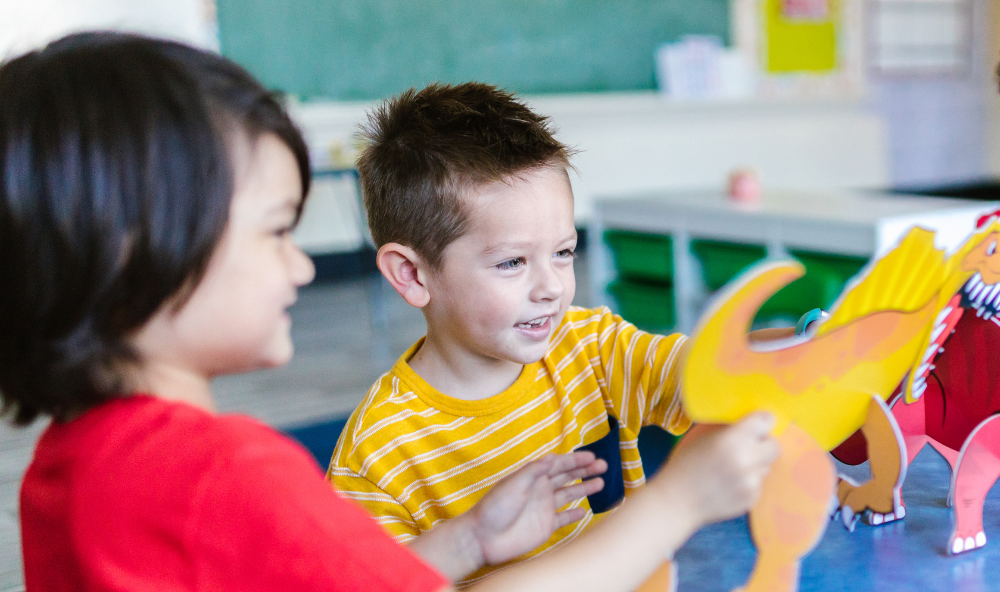The Benefits of Social Interaction for Children
5 November, 2024

Social interaction is a vital part of a child’s development, providing them with opportunities to learn, grow, and build meaningful connections. For children with disabilities, these interactions can be especially beneficial, helping to foster a sense of belonging, enhance communication skills, and improve overall well-being. However, it’s important to recognise that these interactions need to be approached with care and inclusivity to ensure that every child can fully participate and thrive.
In this blog, we’ll explore the key benefits of social interaction for children and how these experiences can positively impact their lives.
1. Building Communication Skills
Social interaction is a natural way for children to develop and practice communication skills. For children with disabilities, especially those with speech or language challenges, engaging with others can provide valuable opportunities to express themselves, understand social cues, and improve their ability to communicate effectively. Whether through verbal communication, sign language, or assistive technology, these interactions encourage children to convey their thoughts and needs in ways that work for them.
Participating in group activities, playing with peers, or simply spending time with family members allows children to practice these skills in real-life situations. Over time, these experiences help them become more confident in their ability to communicate, which is essential for their overall development and independence.
2. Enhancing Emotional Well-Being
Social connections are crucial for emotional health, offering children a sense of belonging and support. For children with disabilities, positive social interactions can reduce feelings of isolation and help build self-esteem. Friendships and peer relationships provide comfort, understanding, and a shared sense of experience that can be deeply reassuring.
Through social engagement, children learn to navigate emotions, develop empathy, and understand different perspectives. These experiences are vital for emotional regulation and resilience, helping children cope with challenges and celebrate successes. Being part of a supportive community also reinforces the idea that they are valued and accepted for who they are.
3. Encouraging Cognitive Development
Social interactions stimulate cognitive growth by challenging children to think, solve problems, and adapt to new situations. For children with disabilities, engaging in social activities can promote critical thinking, creativity, and the development of new ideas. These interactions encourage children to explore their environment, ask questions, and learn from others in a dynamic, hands-on way.
Group activities, such as collaborative games or educational projects, help children with disabilities develop important cognitive skills like concentration, memory, and reasoning. By interacting with peers, they can also observe different ways of thinking and problem-solving, broadening their understanding of the world around them.
4. Promoting Independence and Life Skills
Social interactions often involve activities that teach practical life skills. Whether it’s sharing, taking turns, or cooperating with others, these experiences help children develop important skills that contribute to their independence. Learning to work with others in a group, follow social norms, and resolve conflicts are all part of becoming more self-sufficient and confident in everyday situations.
These interactions also provide opportunities for children to practice decision-making, assertiveness, and self-advocacy. By engaging in social settings, they learn how to express their preferences, make choices, and navigate social expectations—all of which are essential for their long-term independence.
5. Fostering a Sense of Belonging
Every child deserves to feel included and valued. Social interaction helps children feel connected to their peers and the broader community, fostering a sense of belonging that is crucial for their self-esteem and overall happiness. Inclusive environments where children with and without disabilities interact can break down barriers and promote understanding, acceptance, and friendship.
Participating in social activities, whether at school, in the community, or through organised programs, helps children with disabilities see themselves as active and valued members of society. This sense of belonging is fundamental to their emotional and social development, providing a foundation for positive relationships and personal growth.
Supporting Social Interaction
While the benefits of social interaction are clear, it’s also important to recognise that children with disabilities may face unique challenges in accessing these opportunities. Parents, caregivers, educators, and support workers play a critical role in facilitating inclusive and supportive environments where all children can engage and thrive.
Providing the right support, whether through specialised programs, adaptive communication tools, or simply creating welcoming spaces, can make a significant difference. By encouraging positive social interactions, we can help children build the skills, confidence, and connections they need to lead fulfilling lives.
Conclusion
Social interaction is more than just a way to pass the time; it’s a powerful tool for growth, learning, and well-being. For children, these interactions offer invaluable opportunities to develop communication skills, enhance emotional health, foster cognitive development, promote independence, and build a sense of belonging. By ensuring that all children have the chance to connect and engage with others, we can support their journey toward a brighter, more inclusive future. e professionals are essential to building inclusive communities where everyone can thrive.





 1800 940 515
1800 940 515